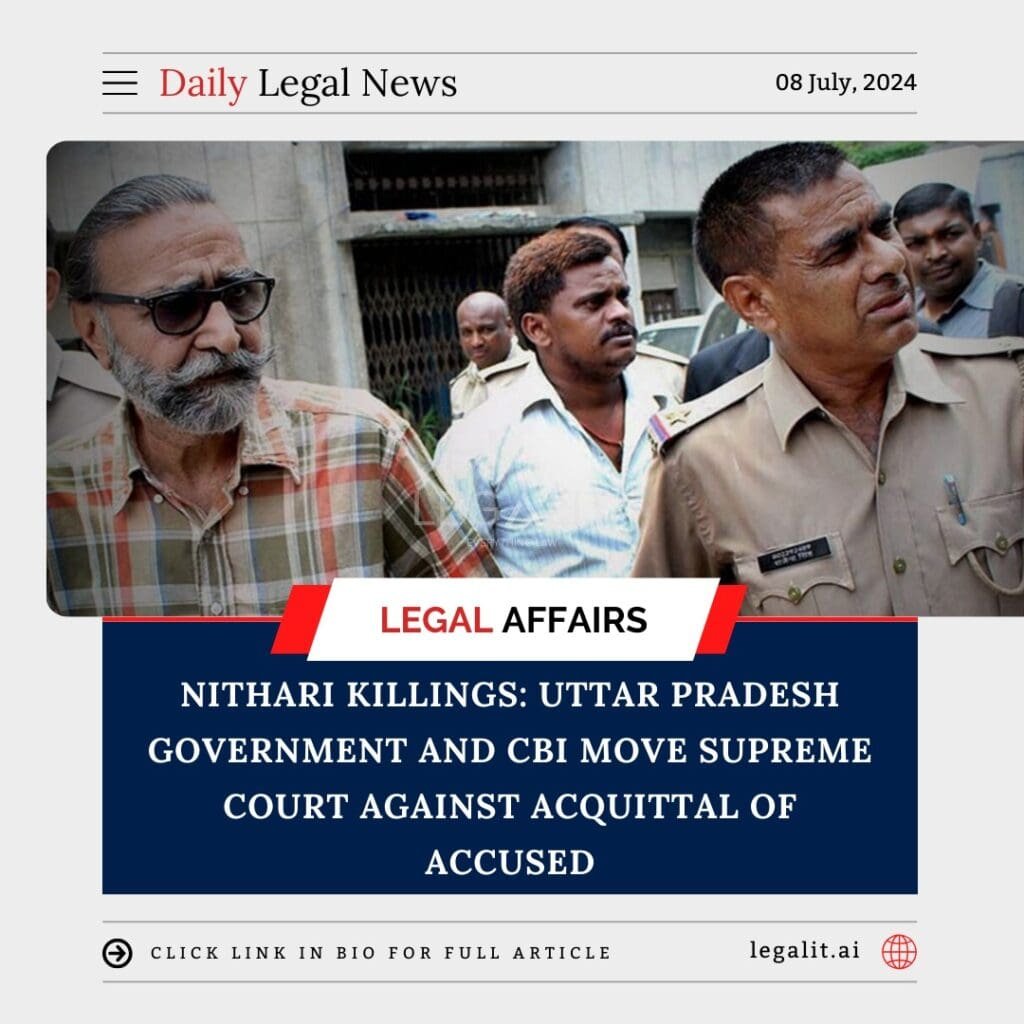
In a significant legal development, the Uttar Pradesh government and the Central Bureau of Investigation (CBI) have approached the Supreme Court of India, challenging the acquittal of the accused in the infamous Nithari killings case. This case, which shocked the nation, involves a series of gruesome murders and acts of cannibalism in the Nithari village of Noida, Uttar Pradesh.
Background of the Nithari Killings
The Nithari killings, which came to light in 2006, involved the discovery of skeletal remains of children and young women in the drain behind the house of businessman Moninder Singh Pandher and his domestic help Surinder Koli. The investigation revealed horrific details of abduction, sexual assault, murder, and alleged cannibalism. Pandher and Koli were arrested and faced multiple charges in connection with these crimes.
Acquittal of the Accused
In a controversial ruling, the Allahabad High Court acquitted Moninder Singh Pandher and Surinder Koli in one of the cases related to the Nithari killings. The court cited lack of sufficient evidence to conclusively link the accused to the specific murder they were charged with, leading to their acquittal. This decision sparked outrage and calls for justice from the victims’ families and the public.
Appeal to the Supreme Court
Unwilling to accept the acquittal, the Uttar Pradesh government and the CBI have now moved the Supreme Court, seeking a reversal of the High Court’s decision. The appeal emphasizes several key points:
- Evidence and Testimonies: The appeal argues that the High Court overlooked critical evidence and testimonies that established the guilt of the accused. It contends that the circumstantial evidence, forensic reports, and witness statements were sufficient to warrant a conviction.
- Nature of the Crimes: Highlighting the heinous nature of the crimes, the appeal stresses the need for stringent punishment to serve as a deterrent against such brutal acts. The appellants argue that acquittal in such a case undermines the justice system and fails to provide closure to the victims’ families.
- Legal Precedents: The appeal references legal precedents where the Supreme Court has intervened in cases of acquittal by lower courts, ensuring that justice is served by reassessing the evidence and the legal basis of the acquittal.
Implications of the Appeal
The Supreme Court’s decision on this appeal will have significant implications:
- Judicial Precedent: A reversal of the acquittal could set a precedent for handling similar cases, emphasizing the need for thorough scrutiny of evidence in crimes involving extreme brutality.
- Public Trust: The outcome of the appeal will impact public trust in the judicial system, especially in cases involving serious crimes. Upholding the acquittal might lead to perceptions of injustice, while overturning it could restore faith in the legal process.
- Victims’ Closure: For the families of the victims, the Supreme Court’s decision will be crucial in providing a sense of justice and closure after years of legal battles and emotional turmoil.
Conclusion
The Uttar Pradesh government and the CBI’s appeal to the Supreme Court against the acquittal of the accused in the Nithari killings is a critical step in the pursuit of justice for the victims of these horrific crimes. As the Supreme Court reviews the case, the nation watches closely, hoping for a decision that upholds the principles of justice and accountability. This case underscores the importance of a robust legal framework that can effectively address and resolve complex criminal cases, ensuring that perpetrators of such heinous acts are duly punished.